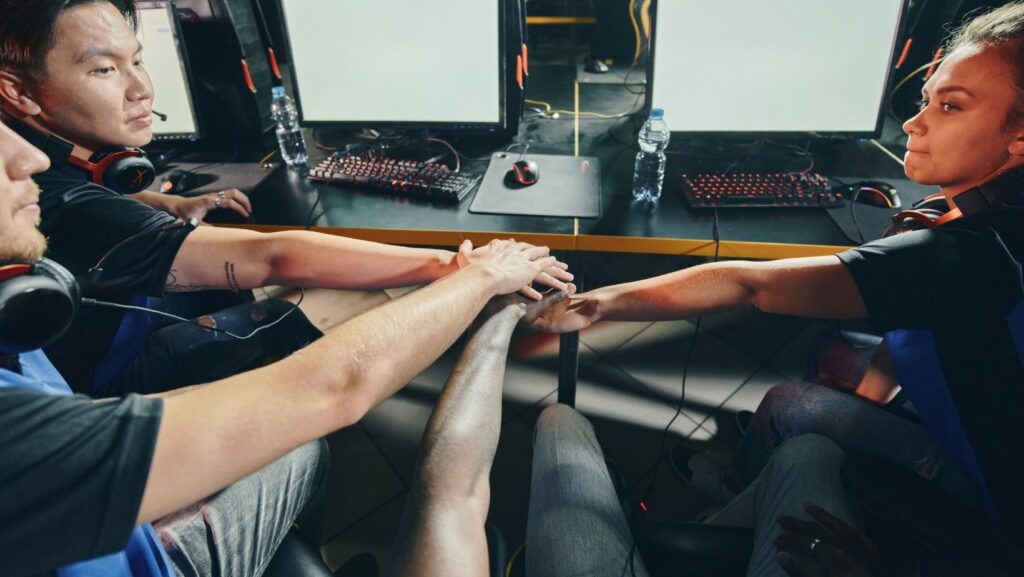Getting into the world of esports can be thrilling, but knowing how to join the right team can make all the difference. As a seasoned gamer, I’ve learned the ins and outs of navigating the competitive gaming scene to secure a spot on a top-tier esports team. In this article, I’ll share my expertise on what it takes to join an esports team and elevate your gaming career.
From honing your skills to networking with fellow gamers, the path to joining an esports team is a strategic one. I’ll walk you through the essential steps and provide valuable tips to boost your chances of catching the eye of recruiters. Whether you’re a solo player looking to break into the competitive scene or a team member aiming to level up, I’ve got you covered with practical advice and insider knowledge.
How To Join An Esports Team
The Rise of Competitive Gaming
Exploring the evolution of competitive gaming is essential to understand the significance of joining an esports team. The competitive gaming landscape has witnessed unprecedented growth, with millions of players and viewers engaging in various esports titles. Understanding the popularity and competitiveness of esports can motivate aspiring players to pursue opportunities within organized teams.
Different Types of Esports Teams
Distinguishing between the different types of esports teams is crucial for players looking to join the competitive gaming scene. Esports teams vary in structure, focus, and goals, ranging from amateur local teams to professional organizations with global recognition. Familiarizing oneself with these distinctions can help individuals align their ambitions and skills with the right team for their gaming aspirations.
Assessing Your Skill Level
Knowing Your Game Inside Out
 When it comes to assessing my skill level for joining an esports team, understanding the game I play is crucial. Mastery of game mechanics, strategies, and in-game knowledge plays a significant role in determining my capabilities as a player. As I evaluate my skills, I focus on my proficiency in the game’s mechanics, map awareness, hero or champion pool, and strategic decision-making. Being able to predict opponents’ moves, execute precise maneuvers, and capitalize on in-game situations showcase my expertise and readiness to compete at a higher level.
When it comes to assessing my skill level for joining an esports team, understanding the game I play is crucial. Mastery of game mechanics, strategies, and in-game knowledge plays a significant role in determining my capabilities as a player. As I evaluate my skills, I focus on my proficiency in the game’s mechanics, map awareness, hero or champion pool, and strategic decision-making. Being able to predict opponents’ moves, execute precise maneuvers, and capitalize on in-game situations showcase my expertise and readiness to compete at a higher level.
Comparing Myself to Current Players
To accurately assess my skill level and suitability for an esports team, I compare myself to current players in the competitive scene. Analyzing my strengths and weaknesses against professional or top-tier players allows me to identify areas for improvement and set realistic goals for skill development. By studying their gameplay, strategies, and performance metrics, I gain valuable insights into the standards expected in the competitive gaming environment. This comparison helps me gauge where I stand relative to elite players and enables me to work on enhancing my skills to meet the requirements of top esports teams.
Building a Competitive Profile
Crafting an Impressive Gamer Resume
 When building a competitive profile to join an esports team, creating an impressive gamer resume is essential. My resume should showcase my gaming achievements, including tournament wins, notable rankings, and any special recognition received. Including details about the games I excel in, my playstyle, and roles played can give recruiters a clear picture of my strengths as a player.
When building a competitive profile to join an esports team, creating an impressive gamer resume is essential. My resume should showcase my gaming achievements, including tournament wins, notable rankings, and any special recognition received. Including details about the games I excel in, my playstyle, and roles played can give recruiters a clear picture of my strengths as a player.
I’ll also include any leadership roles held within teams, coaching experience, or contributions to the gaming community. Having a well-structured and visually appealing resume can grab the attention of esports team managers and increase my chances of getting noticed.
Gaining Visibility Through Social Media and Streaming
To enhance my visibility in the esports world, leveraging social media and streaming platforms is crucial. I should create and maintain professional profiles on platforms like Twitter, Instagram, and LinkedIn, focusing on my gaming accomplishments and sharing insights about the games I play.
Streaming gameplay on platforms like Twitch or YouTube can showcase my skills to a wider audience and attract the attention of esports organizations looking for talented players. Engaging with followers, participating in gaming communities, and collaborating with other gamers can also help me build a strong online presence in the esports community.

